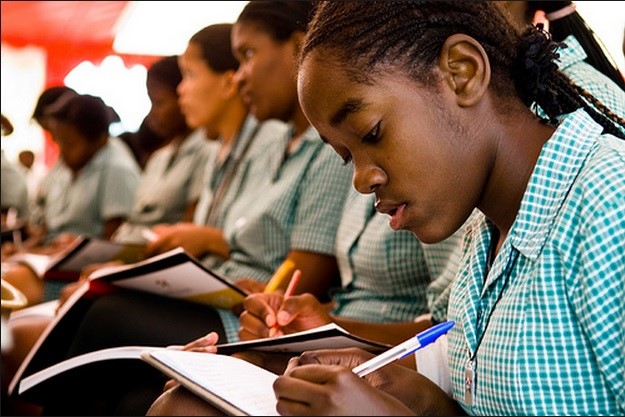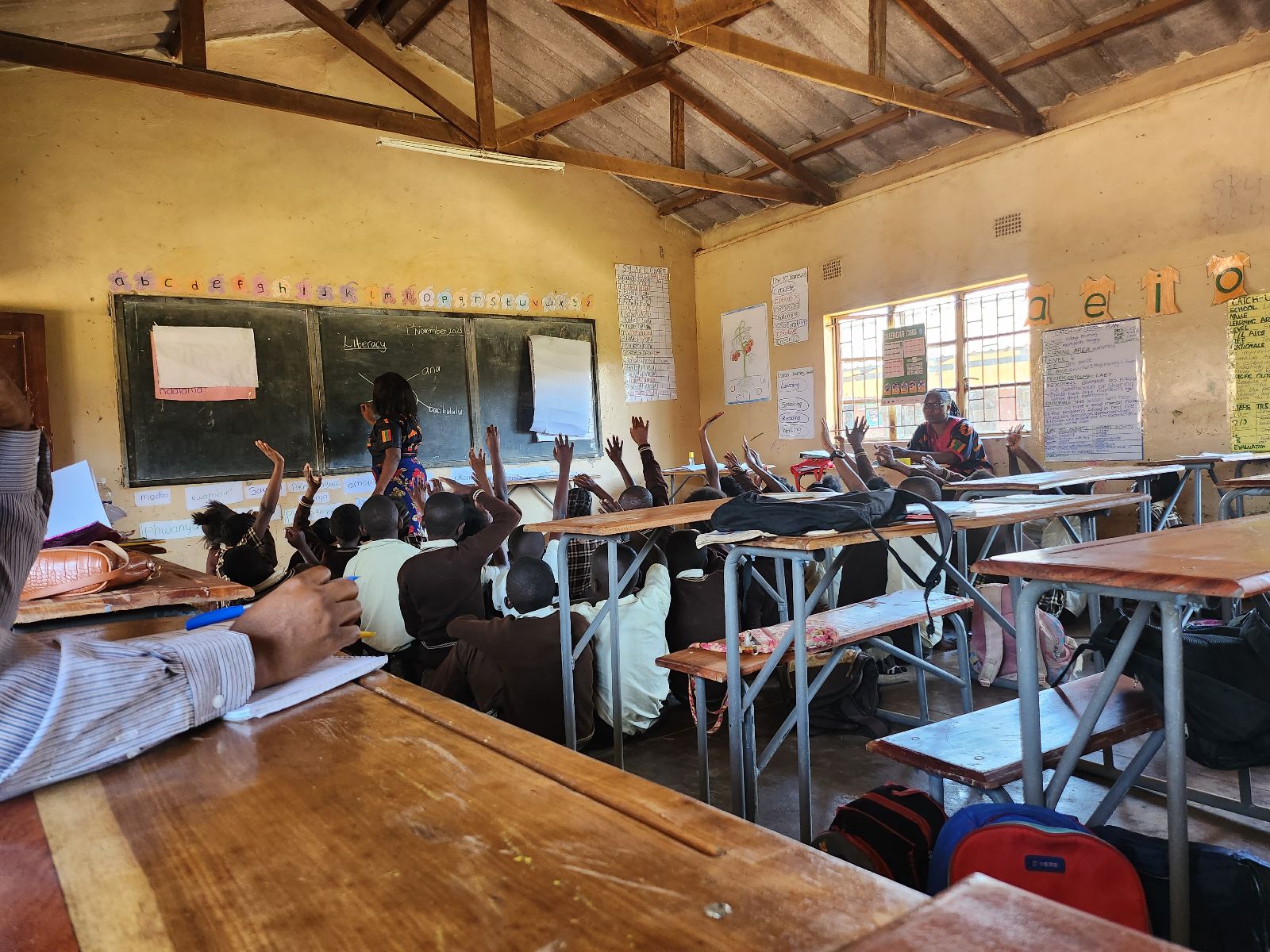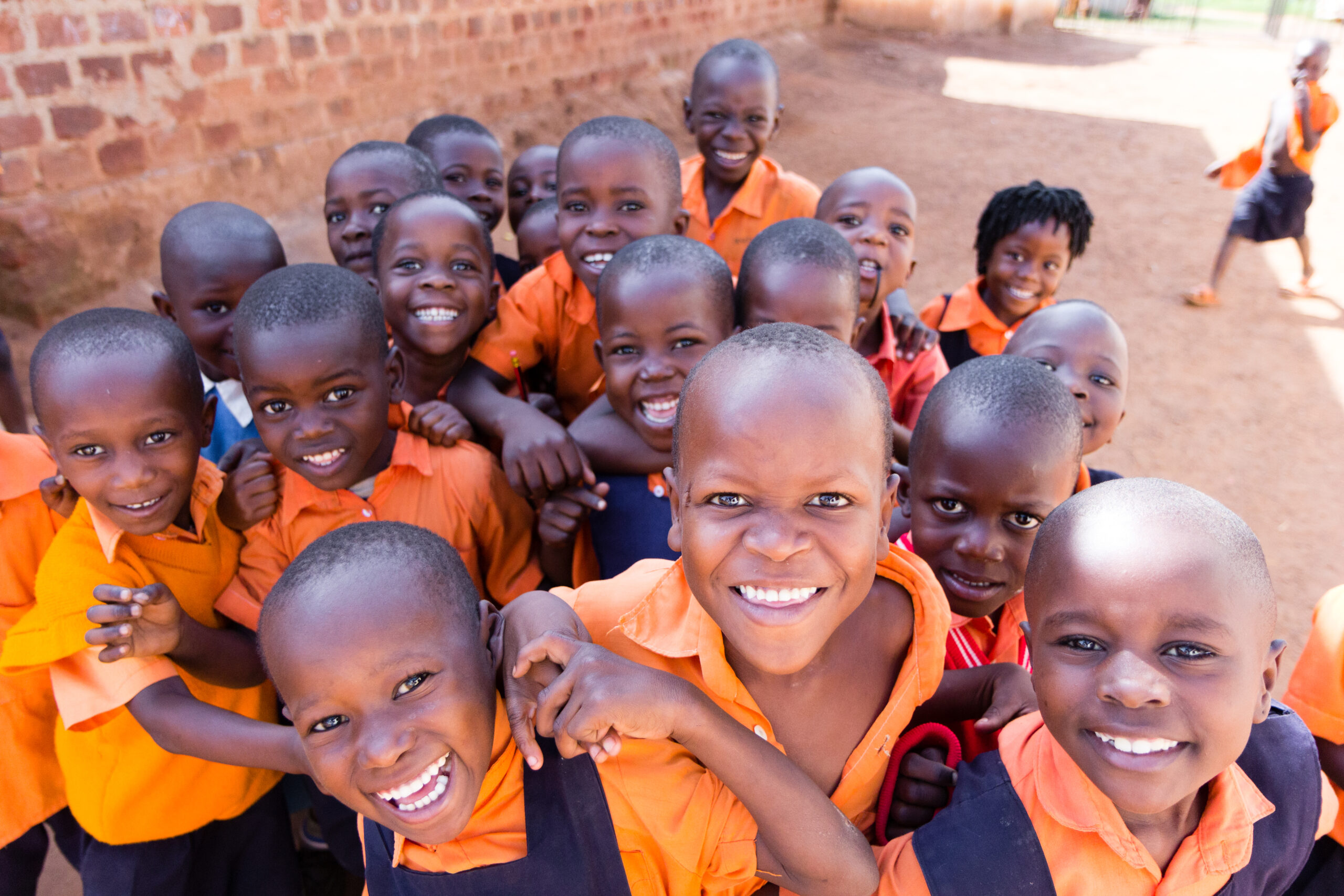We are excited to announce that Brink is now part of Africa Practice. Learn more
TES summit: Towards ending the global learning crisis

Tackling the learning crisis in Africa
The world is facing an education crisis. Widespread learning poverty predated COVID-19 and was further exacerbated by the impact of the pandemic and related school closures. In 2019, the learning poverty rate was estimated at 57% in low and middle-income countries (LMICs); in 2022 it surged to 70% owing to learning disruptions caused by the pandemic. According to the World Bank, in Africa, nine out of ten children aged 10 years are estimated to be learning poor – unable to read or understand simple texts by that age.
The Transforming Education Summit
This year’s Transforming Education Summit (TES) concluded in New York on 19 September, against this troubling backdrop. TES was convened alongside the United Nations General Assembly, aiming to elevate education to the top of the global political agenda, assess education challenges at multiple levels, secure political commitments and agree on actions to close the widening learning poverty gap.
The agenda was largely dominated by the discussions around foundational literacy and numeracy, education in emergencies, solutions to transform education, and reimagining learning through partnership and digital transformation. Foundational learning refers to the basic numeracy, literacy and life skills which form the basis of a child’s education and prepare them for future economic and social participation.
Sierra Leone’s President Julius Maada Bio, co-chair of the TES, led the conversation, emphasising how purposeful investments in education can deliver optimal results and reverse the learning crisis. David Malpass, president of the World Bank Group, further called on world leaders to secure foundational learning for children by keeping schools open, extending weekly hours of instruction, and increasing education investments with a focus on literacy and numeracy.
Two main initiatives were announced during the summit:
- The launch of the International Finance Facility for Education (IFFEd): IFFEd is a new funding mechanism for global education, specifically designed for LMICs), to boost access to education for vulnerable children across the world. It will specifically focus on closing the education financing gap in LMICs and also complement existing instruments like the Global Partnership for Education (GPE), a funding platform strengthening education in developing countries, and the Education Cannot Wait (ECW), the UN’s global fund to support education in emergencies and crises.
The initiative aims to provide an initial USD 2 billion in funding to be disbursed from 2023 and mobilise an additional USD 10 billion by 2030. Africa and Asia are set to be the first beneficiaries of the IFFEd prior to global expansion of the mechanism.
- Endorsement of a global commitment to action to address the global foundational learning crisis: In the lead up to the summit, UNICEF launched a Commitment to Action (CtA) on foundational learning, calling for endorsement from world leaders to ensure all children develop foundational learning relevant to full participation in society and realisation of their potential. At the summit, the US took the lead in endorsing the CtA and highlighted plans to improve access to education and learning opportunities for over 15 million girls by 2025. Education ministers from Niger, Ecuador, Jordan and the Central African Republic also endorsed the CtA. Towards the end of the summit, presidents of Nigeria, Tanzania, Malawi, Zambia, Guinea Bissau, Kenya and Mali committed to instituting bold national agendas to transform education systems in their respective countries.
Driving the agenda going forward
To recover pandemic learning losses, there is a need for collective action on education financing and future-oriented learning. This is what this could look like:
- Partnerships for the future: Education took a backseat in the face of shorter-term priorities, following worsening economic conditions as a result of the COVID-19 pandemic and Russia-Ukraine war. While TES has provided the needed momentum, it is important to leverage partnerships between governments, private sector, civil society, youth and donors to drive the global education agenda. Transforming education is everybody’s business!
- Digitisation: COVID-19 highlighted the inequities in the sector while emphasising the importance of digital tools in bridging the learning gaps. Digital tools are pivotal for education transformation. For instance, at the height of the pandemic, UNICEF launched the Learning Passport (LP), a platform designed to enable continuous learning, mitigate learning losses and close the learning poverty gaps. A total of 25 countries – including Nigeria, Zimbabwe, Egypt, Ghana and Sierra Leone – launched the LPs, further recognising the importance of digital solutions in leapfrogging education. National policies and strategies are needed to establish digital learning on a large scale and make it accessible to all.
- Increased investment: It is estimated that two-thirds of LMICs cut down their education budgets after the pandemic. While the IFFEd is set to boost education financing and help countries leverage their scarce resources, there needs to be commitment at the national level. Otherwise, Africa would be unable to deliver on the SDG goal 4 – to ensure inclusive and equitable quality education and promote lifelong learning opportunities for all by 2030.
About the author
Ujunwa Umeokeke is an associate consultant at Africa Practice, with a particular focus on West Africa. She can be contacted at [email protected].
 Emmanuel Ikwuegbu
Emmanuel Ikwuegbu
Proud to be BCorp. We are part of the global movement for an inclusive, equitable, and regenerative economic system. Learn more


